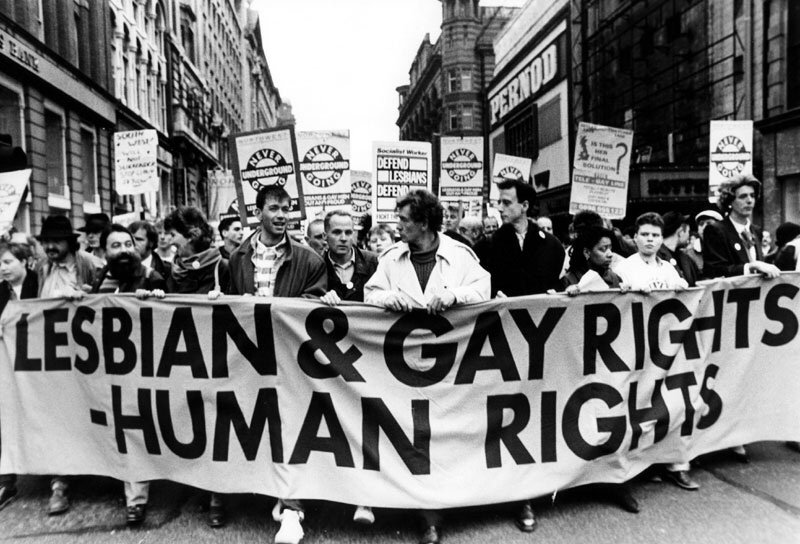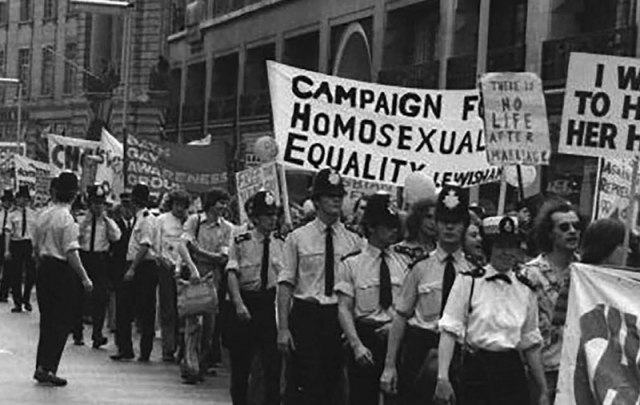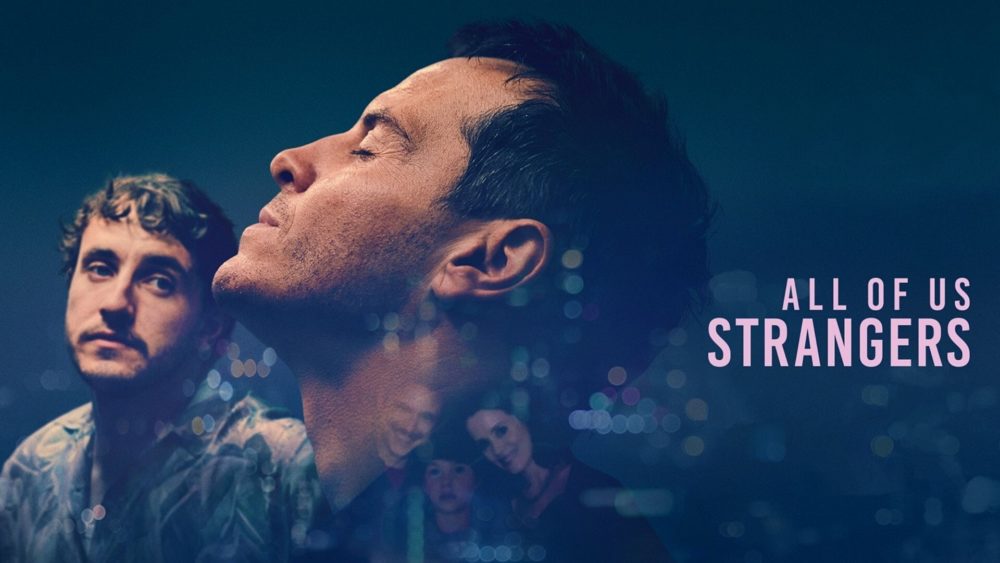Queer: A reclaimed slur, but a slur nonetheless

Stephen Price
Pride season is upon us yet again, to the delight of corporate marketing teams across the land, and one can’t help notice the recent switch from gay pride to the more ‘in’ queer pride.
“We’re here and we’re queer” – and doesn’t everybody know it.
Despite over two decades of casually and coolly using the term queer – a self defined term applied to me, by me – I’m beginning to question my own acceptance of this currently-in but heavily-loaded term.
From being on the sidelines and (in my case) quite happy not being the norm – it now seems that the normies want in on the queer gang, and the rules for entry aren’t as straightforward as they once might have been.
This reclamation of the term queer – once thrown at gay kids to do harm – is nothing new, and has long been used by many within the gay community (if there is such a thing) with pride and kinship. But it’s now ripe for the corporates, ripe for the mass market, prime for the Corrie ad break, and all are welcome besides those who disagree with its usage.
Indeed, it’s even come to replace the terms gay, lesbian and bisexual or the latest pre-approved acronym.
Smalltown boyo
With social media being where much of our interaction with the familiar and stranger alike takes place, corporates are armed, ready and waiting with new profile pics and messages of solidarity lest they be mistaken for being out there to make a profit.
The annual calendar is filled with such-and-such a day, week or month, overfilling like a sick bucket only without any of the sick bucket’s benefit.

The sanitisation of the term ‘queer’ in the eyes of the mainstream, however, has left me wanting to champion the voices that take exception to a word that was once used to bully them and taunt them in their formative years.
And not only is the term becoming mainstream, corporate and cool, it’s also, absurdly, being used to bypass any specific mention of the very identities of the people it was once meant to represent.
Girl as insult
As an 80s child, I never had the term ‘queer’ used towards me.
At school, I was called ‘a girl’ or ‘a poof’ – so adopting the word queer felt somewhat neutral in my late teens.
In empathy, however, even recounting the words intended to wound me by others conjures memories of shame and deep hurt. How strange, to simply be called a member of the opposite sex. So much to ‘unpack’ there.
My blood runs cold thinking of the names that hurt me, or hearing about the verbal and physical torment so many of my friends endured in the school yard – so why are older gay people silenced when they talk about their unease at seeing a word that hurt them banded about not only freely, but often combatively or with condescending ‘queer joy’? Smeared in their face to antagonise and ostracise in a way no one with any degree of compassion would dare wish to antagonise or upset those currently writing the rules.
And yet, when gay men in particular ask for a rethink, no grace is given. They’re older. They’re gammons. Priviliged cis white dinosaurs. What do they know about being queer!
Would corporates, and groups that once existed – indeed even founded – to represent these very gay men, so freely run with other former and current slurs faced by other groups that have been reclaimed and subverted? I know not.
Progress
So here we are – we’ve gone from LGB (as was the society I joined at university in the early 2000s), to LGBT, to LGBTQIA, to LGBT+ and now we seem to be stopping at queer for a while.
It is, of course, a slightly more convenient term for this band of not-very-merry misfits, but it’s getting more than a little meaningless, and those suggesting the disparate group members go their separate ways are to be burned at the stake as heretics.
But is anyone actually happy under the latest laughable incarnations of the Pride flag? Suggesting that the rainbow did the job already, and better, is not allowed, before you ask.

Everyone must toe the company line lest they’re called a Harry Potter reader or a closet LGB Alliance supporter, and more often than not, people do just that out of a simple case of wanting to be kind, wanting to be inclusive, and recognising other people’s truths and their vulnerabilities.
But is it too much to ask for those who dig their heels in when it comes to proliferating the term ‘queer’ to recognise the truths and vulnerabilities of those that came before them?
Or does youth, and today’s subversions of what it means to be queer, top trump the feelings and lived realities of those who were chemically castrated, beaten within an inch of their lives, imprisoned or even put to death?
Strangers
The generational divide between preference, or even acceptance, of the term queer to define sexuality was eloquently discussed in the recent film, All of Us Strangers, starring Paul Mescal and Andrew Scott.
While the younger Harry, played by Mescal, prefers the designation ‘queer’, Adam, played by Andrew Scott, defines himself as gay.

In a touching scene, Adam makes clear his discomfort and perhaps curiosity over Harry’s decision to define himself as queer, and is surprised to hear that for the younger generation, indeed my generation, to be called ‘gay’ is the more familiar insult.
So perhaps queer is a safer, kinder word for the young – a more inclusive word even.
“You can hang out with all the boys”
Joining the queue at a local Post Office a few years back, I was struck by a pride poster that casually referred to queer people.
And since then, the Post Office has had to defend itself from using the term on social media.
Would I wish to walk into a shop, or scroll through my phone, and see myself referred to as a poofter? Certainly not.
And it’s not just corporates, charities, arts organisations and the like who are adopting the term – it’s even fair game for the Welsh Government, as seen in their LGBTQ+ Action Plan for Wales.
Bev Jackson, the co-founder of LGB Alliance, told The Telegraph: “Many lesbians and gay men reject the word ‘queer’ as a slur, one often uttered before a vicious beating. Others reject it because it has been claimed by straight people as a fashionable identity.”
Last year, LGB Alliance released a report entitled Don’t Call Me Queer which found 90 per cent of those surveyed felt uncomfortable with the word.
And until now, I’ve used the word freely and, indeed, even policed my own writing in order to ensure it passes the “I’m out of this culture war thanks” test.
But in doing so – in policing my own words – I denied the feelings of many, particularly older gay and lesbian people, who do have an issue with this word.
And I have also done a disservice to homosexual folk who feel the word is used as erasure.
Section 28
Take a recent social media history lesson I received about Section 28.
In this ‘queer’ artist’s recounting of a policy that severely impacted tens if not hundreds of thousands of homosexual or bisexual men and women, the policy was said to have applied to ‘queer people.’
No mention of gay men, no mention of the prohibition of “the promotion of homosexuality.”

Make of that what you will. But as someone who grew up with their sexuality being aligned with paedophilia, or sex being intrinsically linked to a traumatic fear of HiV and AIDS, today’s take on what might be considered queer should not override the one we all knew to be the case until very recently.
“Salty straights”
To be ‘queer’ is to be cool nowadays.
Gay clubs are a hen night destination, RuPaul’s Drag Race is a TV mainstay. And it’s become trendy for people to define themselves as ‘queer’ whilst living a life that appears ‘straight’ to the outsider
Far be it from me to judge their ‘heteronormativity’ – but thinking Megan Fox looks hot or inviting someone else into the room to spice things up for the hubby does not a lesbian make.
Married mother of I-don’t-know-how-many-kids Dannii Minogue also recently come out as queer – and I have no idea what she gets up to behind closed doors, and neither do I want to know, but come off it.
Demi Lovato (currently engaged to a handsome chap) is also in the queer gang because of her ever-changing pronouns.
Others are in the gang because they’re a bit kinky and want everyone to know it. Even Vibe recently asked, “Can straight people be queer?”
As they put it: “A straight person identifying as queer can feel like choosing to appropriate the good bits, the cultural and political cache, the clothes and the sound of gay culture, without the laugh riot of gay-bashing, teen shame, adult shame, shame-shame, and the internalised homophobia of lived gay experience.”
Perhaps, one might argue, its subversion was inevitable.
Like the inclusion of AFAB (assigned female at birth) drag (dressed as a girl) queens on Drag Race, a closed door policy cannot be seen to be the territory of the persecuted. But in a wide open free for all, what meaning does any of it have?
The conclusion from the Vibe article is that we will all soon de-camp and move back to our more specific designations and reject the ‘in’ idea of fluidity and spectrums which, of course, can be the case, but for the vast majority of gay and lesbian people I know, it is not and will not ever be the case.
In the words of Lady Gaga, “baby we were born this way”.
Ask anyone how they’d like to be defined and each person’s response will differ from the next, but just as we did away with the offensive terms to lump people of differing races together, all most people want is to be referred to as their individual identities rather than a mass of squabbling ‘othereds’ – but no one seems to get this message.
If you’re referring to gay people, refer to them.
If you’re referring to trans people, refer to them.
If you’re referring to asexual or intersex people (my heart goes out to the former) then do just that.
And so on and so forth.
“I’m coming out”
In today’s age of ‘raising awareness’ and the unearned badge-wearing victim, whoever wishes to use the term queer can crack on, but I’m personally out.
There couldn’t be a right or wrong in this case, and one thing I’ll never do is police other people’s words, but the drowning out of voices because they come from another generation, one that couldn’t have ever dreamed of living their lives openly and without shame, should be cause for concern.
Pride was a riot, a fight for freedom to live without persecution, not a corporate cash-in, and certainly not a place where one dare not focus on one specific group within the oft-illogical cohort for fear of offence.
The need for pride is as valid and as vital across the world as it’s ever been, but in the west it’s becoming overdone and devoid of meaning.
I kissed a girl and I didn’t like it, but I’ll be identifying as straight if things keep heading this way.
And if that happens, the answer is no, we’re not having our own bloody Pride.
Support our Nation today
For the price of a cup of coffee a month you can help us create an independent, not-for-profit, national news service for the people of Wales, by the people of Wales.







Thank you! Someone has finally had the courage to stand up against the corporate utilising of that vile word and its connotations.
Now, let’s stop treating people as labels, but with the dignity that each person deserves. Let’s start by not normalising nasty slurs.
My full respect to you Stephen Price.
Can’t it be July already? Don’t want to deal with that toxic community, especially when they now don’t need to find an excuse to make everything about themselves.
Welsh Government and our embarrassing MPs, MSs and local politicians are pushing this utter nonsensical garbage more than anyone else desperatetobe validated and woke . It’s about time they stopped wasting tax payers money erasing LGB people and women for the rights of so called ‘trans’ people and the hoards of perverts and spicy straights. This is not about sexuality anymore but sexual behaviour and fetishes. All stuff that should be kept behind closed doors. Well done NC for printing a great article.
What a breath of fresh air! I’ve watched, incredulous, for the last few years as people I know to be totally straight (heterosexual) or occasionally, bisexual, have dyed their hair, bunged on a bright jumpsuit and some face glitter, and started calling themselves ‘queer’. And then started laying claim to some sort of victimhood or discrimination from which they have never suffered. It is an insult to all the gay men and women who have suffered verbal and physical abuse just for being same sex attracted. I’ve been wondering if the nonsense term LGBTQIA++ would go the same way as… Read more »
Well said! Bravo!